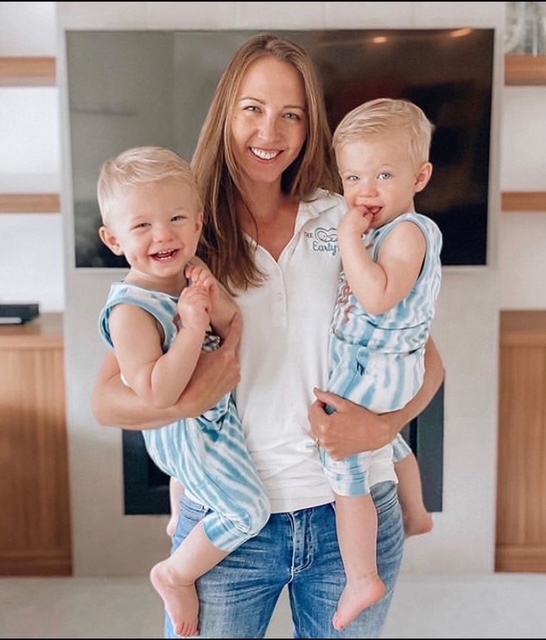With the rise of social media in our lives, and especially when it comes to parenting advice, it is difficult these days to decipher exactly what is best for you and your child. You may have heard about this unique style of parenting that is gaining a lot of popularity lately both on and off social media. We thought we would take a moment to break down some of the fundamentals of the attachment parenting method so you can be informed and ultimately decide if it is right for you and your children. As always, please give us your thoughts in the comments!
What Is Attachment Parenting?
Attachment parenting is a school of thought on parenting that emphasizes building strong emotional bonds between parents and their kids. Fundamentally, it is the belief that children who form secure attachments with their caregivers will develop healthier relationships, better emotional regulation, and greater self-confidence as they grow. Dr. William Sears coined the term ‘attachment parenting’ while, John Bowlby and Mary Ainsworth are considered the founders of ‘attachment theory’.
What Are The Core Principles Of Attachment Parenting?
There happens to be several core principles of this style of parenting. They are commonly referred to as the Baby B’s which help lay the groundwork for the overarching philosophy. Here are those Baby B’s:
Birth Bonding
This one is pretty simple and comes naturally to many parents regardless of whether or not they are trying to practice attachment parenting. Birth bonding means to establish a strong bond with your child from moment one. This includes things like skin-to-skin contact, breastfeeding, and just simply spending time holding and playing with your newborn.
Breastfeeding
Breastfeeding has many benefits on its own, but it is a core part of attachment parenting. It can help to strengthen the emotional bond between mother and child and helps the child feel secure and comforted. Also good for their immune system!
Baby-Wearing
No, this isn’t a fashion statement, but rather a way to keep your baby close with you at all times rather than placing them down in a crib, or jumper or similar device. Keeping them physically close to you allows parents to be responsive to cues like hunger, discomfort (diaper changes), and others right away. It also allows you to interact with your baby more often than if they were placed down and out of the way when you are doing chores around the house.
Bedding Close to Baby
They recommend that you sleep as close to your baby as is safely possible. We don’t recommend co-sleeping in the same bed and neither does the American Academy of Pediatrics as it increases the risk of SIDS and other dangers. However, sleeping in the same room with the baby close to the bed in a secure bassinet is a good option to achieve the “bedding close to baby” commandment.
Belief in the Baby’s Cry
This is a big one! Many schools of thought both agree and disagree with this principal. For attachment parenting, it is important to respond promptly and with sensitivity to your baby’s cries. There is no “crying it out” with this philosophy! The goal is to try to understand and meet their needs at the root of the reason for crying.
Balance and Boundaries
While it is in the name, attachment parenting is also about setting clear boundaries between you and your children as well as a firm balance. Parents need to practice self-care as well as baby-care.
Beware of Baby Trainers
Attachment parenting is all about avoiding shoving your baby into a rigid, predefined system and making them conform to a set of rules devised by a 3rd party, but rather by making a system that is flexible and takes consideration of the individual and their needs rather than always going by the book.
A Sleep Forward Attachment Based Approach
The good news is that you can follow these principles and have an amazing attachment with your little one, all while building healthy sleep foundations during the early weeks and months of life. This is exactly the work that we do with families here at The Early Weeks.
No CIO.
No rigid schedule.
It’s a healthy balance of caring for and enjoying baby while gradually implementing sleep foundations. At the end of the day, when your baby’s needs are properly met, their biology will kick in and sleep will naturally progress.
Before You Go
We hope you enjoyed learning about the ins and outs of attachment parenting. If you would like to know more about this, our sleep learning, consulting or training programs or any of our excellent newborn care services, we are happy to help. Just contact us and we can go over your options and help you find the best path for your little one.
We hope these tips have helped you along your journey. If you have any questions about helping your baby to sleep better, or about your baby in general, please reach out to us HERE. We are experts in all things baby and sleep and would love to help!
About The Author: 💤Katie Bishop | The Early Weeks 💤
✅ Certified Master Pediatric Sleep Consultant
✅ Board Certified Holistic Healthcare Practitioner
✅ Advanced Newborn Care Specialist

![]()
